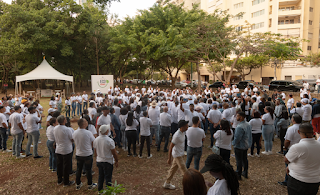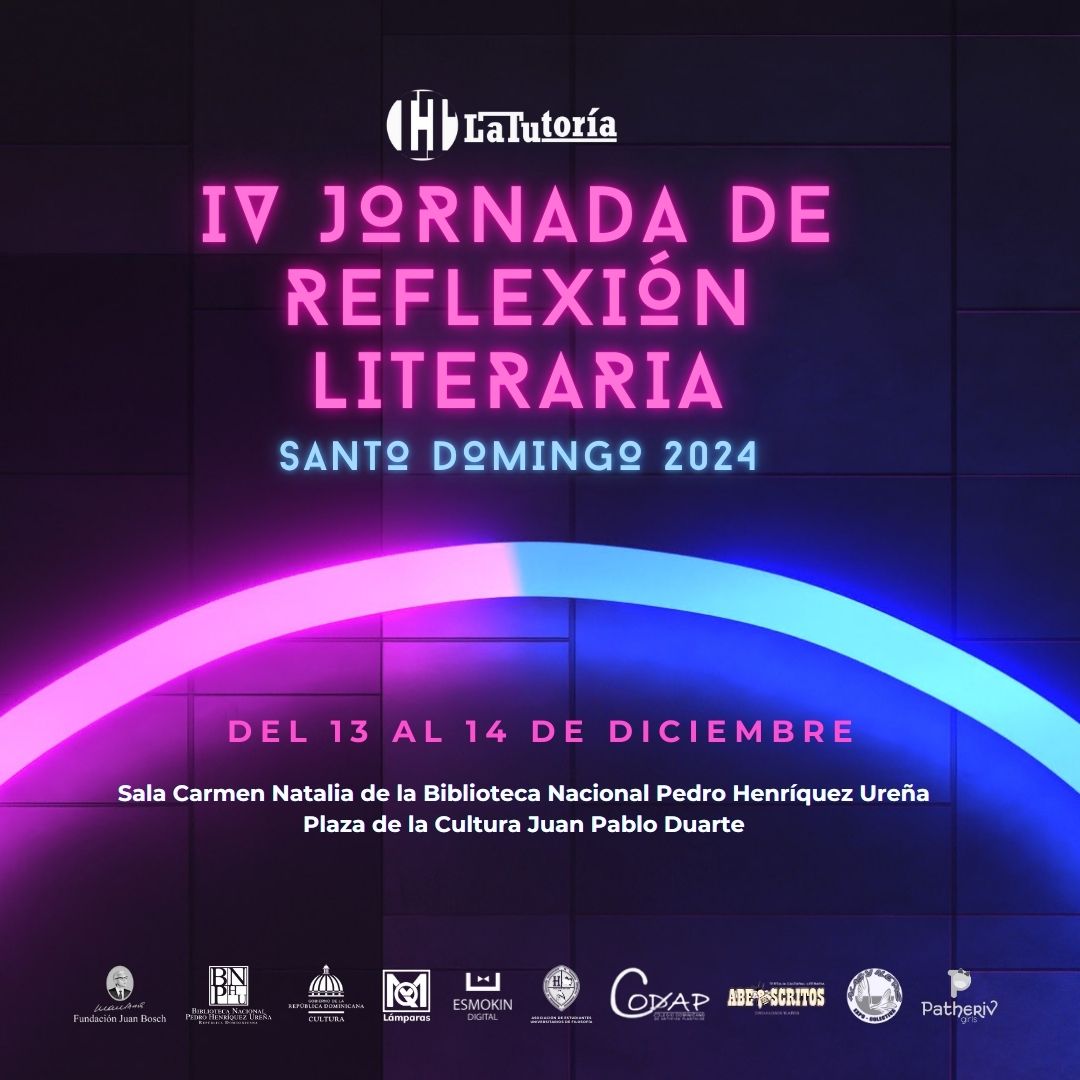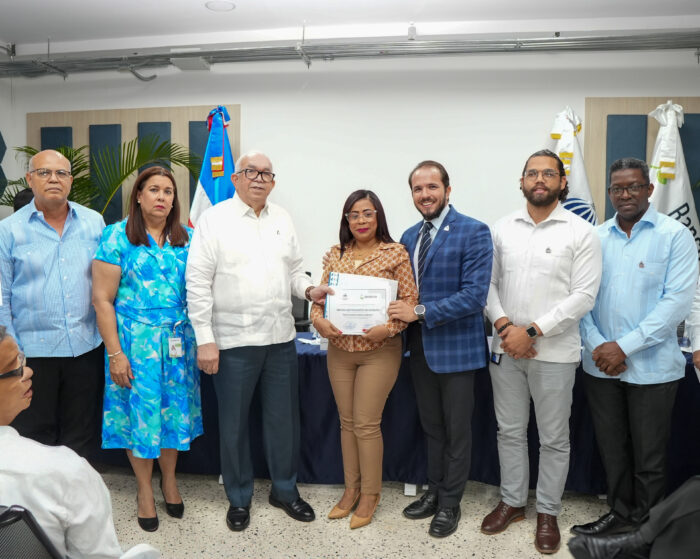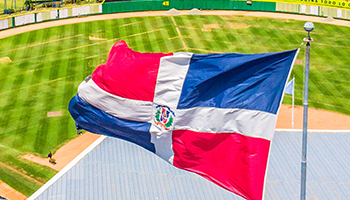Dr. Leonel Fernández Expresses Optimism regarding the Democratic Process in Haiti during Public Conversation at Brown University in Providence, RI
 | Dr. Leonel Fernández Expresses Optimism regarding the Democratic Process in Haiti during Public Conversation at Brown University in Providence, RI On Monday, October 2, former President of the Dominican Republic and President of Global Foundation for Democracy and Development (GFDD) and Fundación Global Democracia y Desarrollo (FUNGLODE), Dr. Leonel Fernández, participated in the public conversation “Democratic Leadership and the Challenges of the 21st Century,” followed by the panel discussion “Democratization: Lessons from Leaders,” organized by the Watson Institute for International Studies and its Center for Latin American and Caribbean Studies at Brown University in Providence, RI. “It would seem that Haiti is stagnate … I do not view it this way,” declared the former Dominican President, after emphasizing, that for the first time, following the fall of the Duvalier dynasty, there is evidence that Haiti has entered into a democratic process, which has been in development during different periods over the course of the last twelve years. The program, “Democratic Leadership and the Challenges of the 21st Century,” also featured engagement by Ricardo Lagos, former President of Chile and Professor at Large at Brown University, and Sergio Bitar Chacra, former Senator and former Minister of Education of Chile, and member of the Inter-American Dialogue. Dr. Fernández and Dr. Lagos were introduced by Professor Richard Snyder, Director of the Center for Latin American and Caribbean Studies, who discussed the contributions of the two former presidents to the development of their respective countries and of the region. Dr. Fernández asserted that the administrations of former Haitian president René García Préval and current President Michel Joseph Martelly came to power as a result of democratic electoral processes. The former Head of State ascertained that despite Haiti’s prolonged history of dictatorship, the country has made significant strides in the construction of a democratic process. In response to a question from a student with regards to Haiti’s centuries-long struggle to achieve independence and subsequently the establishment of a democratic system, Fernández underscored the achievements obtained by Haiti since the year 1986, the date during which the Duvalier dictatorship was overthrown. “It would seem that Haiti is stagnate … I do not view it this way,” declared the former Dominican President, after emphasizing, that for the first time, following the fall of the Duvalier dynasty, there is evidence that Haiti has entered into a democratic process, which has been in development during different periods over the course of the last twelve years. Furthermore, Dr. Fernández posited that since the year 1996, García Préval has been elected president by democratic vote, on two occusions, up until the advent of the election of current president, Michel Joseph Martelly. “He is trying, with great determination, to transform the situation in Haiti,” said the former president of the Dominican Republic of President Michel Martelly. Fernández expressed that in Haiti there is a systematic tendency towards democratic stability, and that the same has been true concerning the return to normalcy following the 2010 earthquake. “I see improvement in Haiti. We must continue lending support to this new government, in a manner that demonstrates to its people that they can overcome the situation created by the earthquake and create new social and economic opportunities,” declared the former Head of State of the Dominican Republic. Addressing the situation generated by the earthquake, Dr. Fernández stressed that Haiti is implementing new housing projects and other important development projects. “I do not view the situation in Haiti with pessimism, but rather with optimism,” concluded Dr. Fernández who also made references to democratic advances in other nations in the region. The panel discussion that followed, “Democratization: Lessons Learned by Leaders” featured interventions by Dr. Leonel Fernández; Dr. Ricardo Lagos; Evelyne Huber, Morehead Alumni Professor of Political Science and Chair of the Department of Political Science at the University of North Carolinaat Chapel Hill; and Alfred Stepan Wallace Sayre Professor of Government, the founding Director of the Center for the Study of Democracy, Toleration, and Religion (CDTR), and the Co-Director of the Institute for Religion, Culture, and Public Life (IRCPL) at Columbia University. The distinguished panelists discussed lessons learned regarding political, social and economic reality of Latin America and the Caribbean. Debates were moderated by Dietrich Rueschemeyer, Professor Emeritus of Sociology at Brown University; Abraham F. Lownthal, Professor of Ethics, Globalization and Development at the University of Southern California; and Sergio Bitar Chacra. Both events were attended by politicians, professors, students and professionals of various sectors. Earlier on in the day, Dr. Fernández delivered a keynote address to student scholarship recipients during the framework of a program realized by Fundación Marcelino Botín of Spain together with Brown University. During the address, the former president provided a historical account of the processes of independence and democratization in the countries of Latin America. Fundación Marcelino Botín, sponsored by Programa Botín, works to facilitate scholarships in the area of public administration in Latin America, a function that it realizes in collaboration with Brown University and other institutions of higher education throughout the continent.
| |

Related News
-

(Versión en español) Se unen para arborizar el Mirador Sur, en jornada "Ecohéroes"
-

(Versión en español) Emprendedores de Banco Adopem son reconocidos en los Premios BCIE
-

(Versión en español) Llega la IV Jornada de Reflexión Literaria Santo Domingo 2024
-

(Versión en español) Tecnificación de Riego certifica más de 400 colaboradores Banco Agrícola
-

Dominicanos en Grandes Ligas
Las ultimas noticias/novedades de lo que acontece con los Dominicanos en las Grandes Ligas durante toda la temporada 2019.







